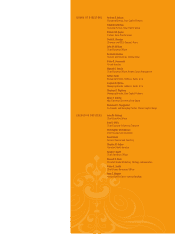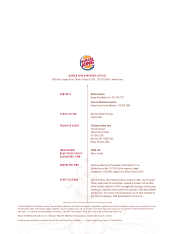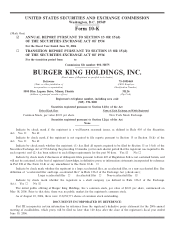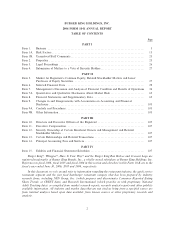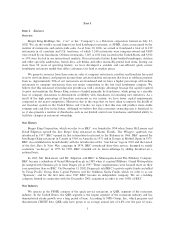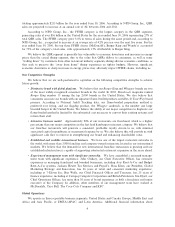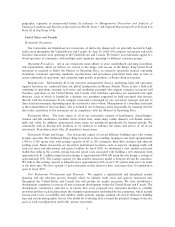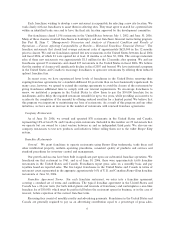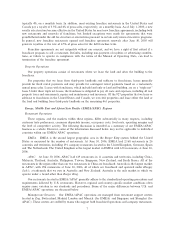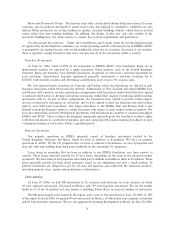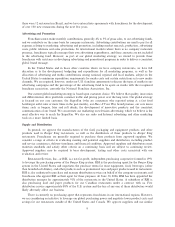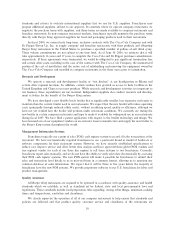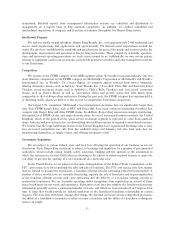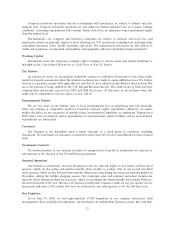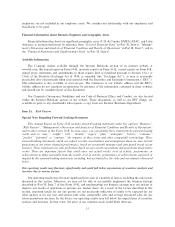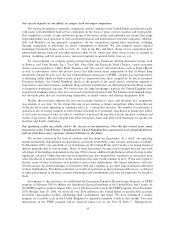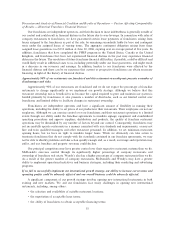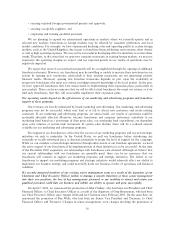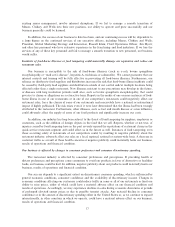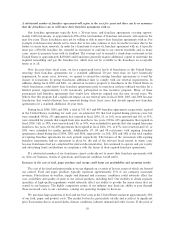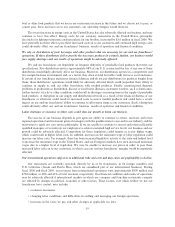Burger King 2006 Annual Report Download - page 21
Download and view the complete annual report
Please find page 21 of the 2006 Burger King annual report below. You can navigate through the pages in the report by either clicking on the pages listed below, or by using the keyword search tool below to find specific information within the annual report.there were 12 restaurants in Brazil, and we have entered into agreements with franchisees for the development
of over 100 new restaurants during the next five years.
Advertising and Promotion
Franchisees must make monthly contributions, generally 4% to 5% of gross sales, to our advertising funds,
and we contribute on the same basis for company restaurants. Advertising contributions are used to pay for all
expenses relating to marketing, advertising and promotion, including market research, production, advertising
costs, public relations and sales promotions. In international markets where there is no company restaurant
presence, franchisees typically manage their own advertising expenditures, and these amounts are not included
in the advertising fund. However, as part of our global marketing strategy, we intend to provide these
franchisees with assistance in developing advertising and promotional programs in order to deliver a consistent
global brand message.
In the United States and in those other countries where we have company restaurants, we have full
discretion as to the development, budgeting and expenditures for all marketing programs, as well as the
allocation of advertising and media contributions among national, regional and local markets, subject in the
United States to minimum expenditure requirements for media costs and certain restrictions as to new media
channels. We are required, however, under our U.S. franchise agreements to discuss the types of media in our
advertising campaigns and the percentage of the advertising fund to be spent on media with the recognized
franchisee association, currently the National Franchise Association, Inc.
Our current global marketing strategy is based upon customer choice. We believe that quality, innovation
and differentiation drive profitable customer traffic and pricing power over the long term. Our global strategy
is focused on our core customer, the SuperFan (who are consumers who reported eating at a fast food
hamburger outlet nine or more times in the past month), our Have It Your Way brand promise, our core menu
items, such as burgers, fries and soft drinks, the development of innovative products and the consistent
communication of our brand. We concentrate our marketing on television advertising, which we believe is the
most effective way to reach the SuperFan. We also use radio and Internet advertising and other marketing
tools on a more limited basis.
Supply and Distribution
In general, we approve the manufacturers of the food, packaging and equipment products and other
products used in Burger King restaurants, as well as the distributors of these products to Burger King
restaurants. Franchisees are generally required to purchase these products from approved suppliers. We
consider a range of criteria in evaluating existing and potential suppliers and distributors, including product
and service consistency, delivery timeliness and financial condition. Approved suppliers and distributors must
maintain standards and satisfy other criteria on a continuing basis and are subject to continuing review.
Approved suppliers may be required to bear development, testing and other costs associated with our
evaluation and review.
Restaurant Services, Inc., or RSI, is a not-for-profit, independent purchasing cooperative formed in 1991
to leverage the purchasing power of the Burger King system. RSI is the purchasing agent for the Burger King
system in the United States and negotiates the purchase terms for most equipment, food, beverages (other
than branded soft drinks), and other products such as promotional toys and paper products used in restaurants.
RSI is also authorized to purchase and manage distribution services on behalf of the company restaurants and
franchisees who appoint RSI as their agent for these purposes. At June 30, 2006, RSI has been appointed the
distribution manager for approximately 91% of the restaurants in the United States. A subsidiary of RSI is
also purchasing food and paper products for our Canadian restaurants under a contract with us. Five
distributors service approximately 88% of the U.S. system and the loss of any one of these distributors would
likely adversely affect our business.
There is currently no purchasing agent that represents franchisees in our international regions. However,
we are considering an initiative to leverage our global purchasing power and negotiate lower product costs and
savings for our restaurants outside of the United States and Canada. We approve suppliers and use similar
9


